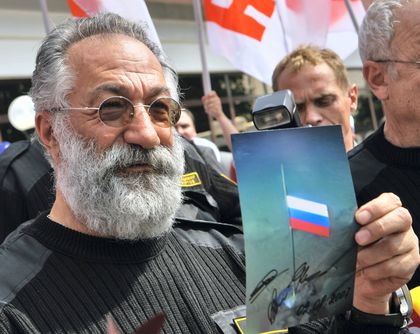The audacious dive by Russian Mir-1 and Mir-2 mini-subs to the North Pole’s seabed has reverberated through the entire world. Why should Russia have installed a titanium flag on the seabed?
Why Russia goes north? August 2, 2007, will go down in history. Some will say it is the day the Great Arctic Confrontation began. Others will call it the day that precipitated the Polar Wars. Others will compare the dive to the Arctic seabed to the first space flight and attempt to prove the great scientific significance of deep-sea research. What has Russia done, opened the Arctic box of Pandora, or made a great scientific discovery? Let’s first determine why science is so heavily laden with geopolitics in this case.
Until 1982, the Arctic Ocean was divided into five sectors belonging to the countries bordering on the North Pole – the USSR, the United States, Canada, Denmark and Norway.
The Soviet Union had the largest sector, because it had the longest Arctic shore.
However, the UN Convention on the Law of the Sea adopted the same year changed the situation drastically. The document limited the economic zone controlled by a country to 200 nautical miles, or 370 kilometres, from its coast. The country has a sovereign right to carry out prospecting operations and produce minerals within the zone. As a result, a huge “ice hole,” a no-man’s land, appeared there after 1982, while the former Soviet sector was reduced substantially.
Russia as the successor of the Soviet Union signed the UN Convention on the Law of the Sea in 1997, to acknowledge the new Arctic border, and later ratified it. The United States did not do so.
The convention has an inbuilt “time bomb”, because some of its clauses stipulate that if a country proves that its continental shelf goes beyond the 200-mile zone, it can expand its economic borders.
Proof should be submitted to a relevant UN commission.
International law enables Russia to do so. According to preliminary estimates, the country could potentially increase its territory by some 1.2mn sq km of high-quality bottom rich in mineral reserves.
Experts have estimated that oil and gas reserves there could amount to 9-10bn metric tons of conventional fuel. The main Arctic road – the Northern Sea Route – crosses the same latitudes.
Six years ago Russia submitted an application to expand its borders, but experts found its arguments insufficient. The country has since made more substantial preparations, which included icebreakers and mini-subs.
The expedition could have passed unnoticed if researchers studied the Lomonosov and Mendeleyev ridges. The Russian geological community maintains that these ridges are a continuation of the continental platform, or continental slopes, as scientists say. Foreign colleagues do not mind such position of the “earth”.
But Russia made an eloquent move by plunging its mini-subs and placing a Russian flag exactly on the North Pole, a place in the world that does not belong to anyone in particular.
Russia is far from the closest country to the point trailing after Denmark, a small country that possesses the huge island of Greenland.
The northern edge of the island is closest to the world’s northernmost point.
Canada with its Ellesmere Island stands slightly behind.
Russia comes third with its Franz Josef Land.
The response to Russia’s placing its flag on the controversial seabed was expected – sharp statements by US and Canadian politicians, who said that they would recognise no flags on the ocean’s bottom and that it was not the 15th century now, when it was possible to mark your territory with range poles.
After the two mini-subs… No matter how nice the minisub combination could look, it both opens a new stage in international relations and makes Russia think about unsolved domestic problems before launching the exploration of Arctic areas.
When targeting the Arctic areas, Russia should not forget about the vast mainland in Siberia and the Far East, which have so far been underdeveloped and neglected.
The huge region needs attention, investment and an influx of people, because the country does not end on the continental shores. The Franz Josef Land, Severnaya Zemlya, Novaya Zemlya, and the New Siberian Islands are huge areas of the continental shelf whose exploration will take several centuries.
This is a real region, not an imaginary Arctica. And there is strong hope that now that the flag has been placed on the North Pole’s seabed the country will change its attitude towards geology, which was seriously damaged in the 1990s, when a large number of experts were left unemployed.
If a piece of titanium helps to revive the once strong geological school of Russia, this alone would be enough to praise members of the August expedition who risked diving to a depth of four kilometres.
Speaking of international relations, a clever Russian fisherman threw a troll in the shape of a titanium flag to the international community.
There are two ways out of the situation – either polar nations agree to divide the promising continental shelf between themselves, or they make urgent amendments to the international law to rule once and for all that the Arctic Ocean is an international preserve.
So far the polar nations have decided to join the race against Russia.The fact that the United States is arranging an urgent expedition to the North Pole is proof of quite expected agitation on the part of those countries.
Canada has already announced its intention to build a polar port and develop its own fleet of icebreakers. Preliminary investment in the project will reach some $100mn.
Denmark and its Greenland will try to prove that the Lomonosov ridge is a continuation of the “Danish” continental shelf, stretching from the world’s largest island.
In any case, I would caution the world’s nation to be careful, as polar games will be harmless and safe until the first Arctic blood is shed, that is, the first oil or gas is discovered.













